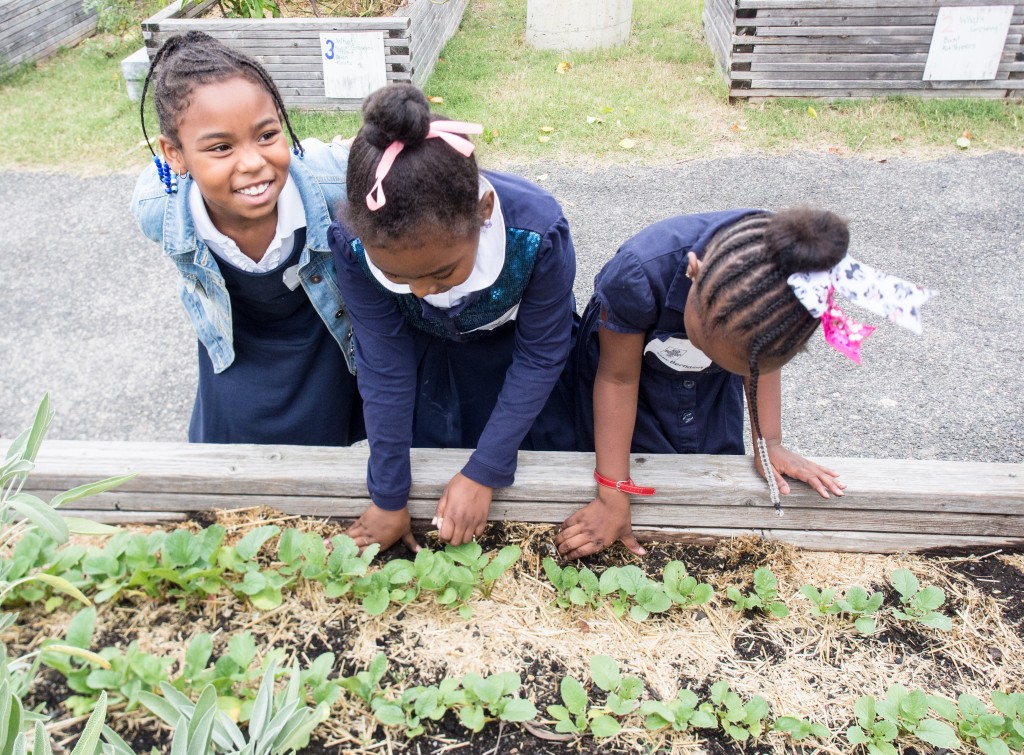
Photo: Kid Power DC

Photo: Kid Power DC
This summer, a number of D.C. elementary and middle school students sold pickles they prepared themselves that came from a garden they worked on together as part of a program hosted by local nonprofit Kid Power Inc. These kids are part of a young and growing population of urban farmers in Washington, D.C. This developing community may be key in tackling the District’s issues regarding local health and its food delivery system.
In the District of Columbia, over 35% of children are considered obese or overweight and 13% of families experience food insecurity. A number of nonprofit community gardens in the area that offer young people access to green spaces could be the answer to this growing problem. These organizations, such as Kid Power, offer youth opportunities where they can learn how to lead healthy lives. Urban gardening also provides this community access to fresh produce. Educating young gardeners in The District could be a major step towards lowering local rates of childhood obesity and food insecurity.
Kid Power is one of several nonprofit organizations in the District that offers local youth the opportunity to try their hand at gardening. Kid Power offers free afterschool programs to its participants. One of its greatest successes is the VeggieTime Program — which provided students with its unique pickle opportunity this summer. Students learn about nutrition, portion control, and, of course, gardening. Programs like Kid Power’s give young people and their families access to fresh produce.
VeggieTime Coordinator Katie Lu Clougherty had the following to say about urban farming for youth, “There are a lot of opportunities right now in the city for new gardens and for even more kids to learn the skill. I think showing youth that gardening is easy to do will make them be more willing to do it on their own.”
The Washington Youth Garden and City Blossoms are also among local organizations that use green spaces to teach local children lessons in environmental stewardship and healthy eating while effecting change concerning childhood obesity and food scarcity. Programs like these are grooming the next generation of urban farmers. As a result, D.C. could see major improvements in its food delivery system, childhood obesity rates, as well as access to fresh produce.
Buying local produce has seen major gains in popularity in recent years. According to a USDA report to Congress on trends in American food systems, the number of farmers markets in the United States increased 180% between 2006 and 2014. Local Harvest lists 80 farmers markets in the District alone. These markets can provide tangible opportunities to budding urban farmers, like those who participate in programs similar to KidPower’s VeggieTime.
As more local kids join their peers in urban gardening, the District of Columbia could quite possibly see major improvements in areas experiencing food scarcity and high childhood obesity rates. Access to green space provided by nonprofits gives youth invaluable opportunities that do not end at just gardening. These spaces allow kids to gain strong understandings concerning everything from portion control to the need for a change in Washington’s food scarce areas.